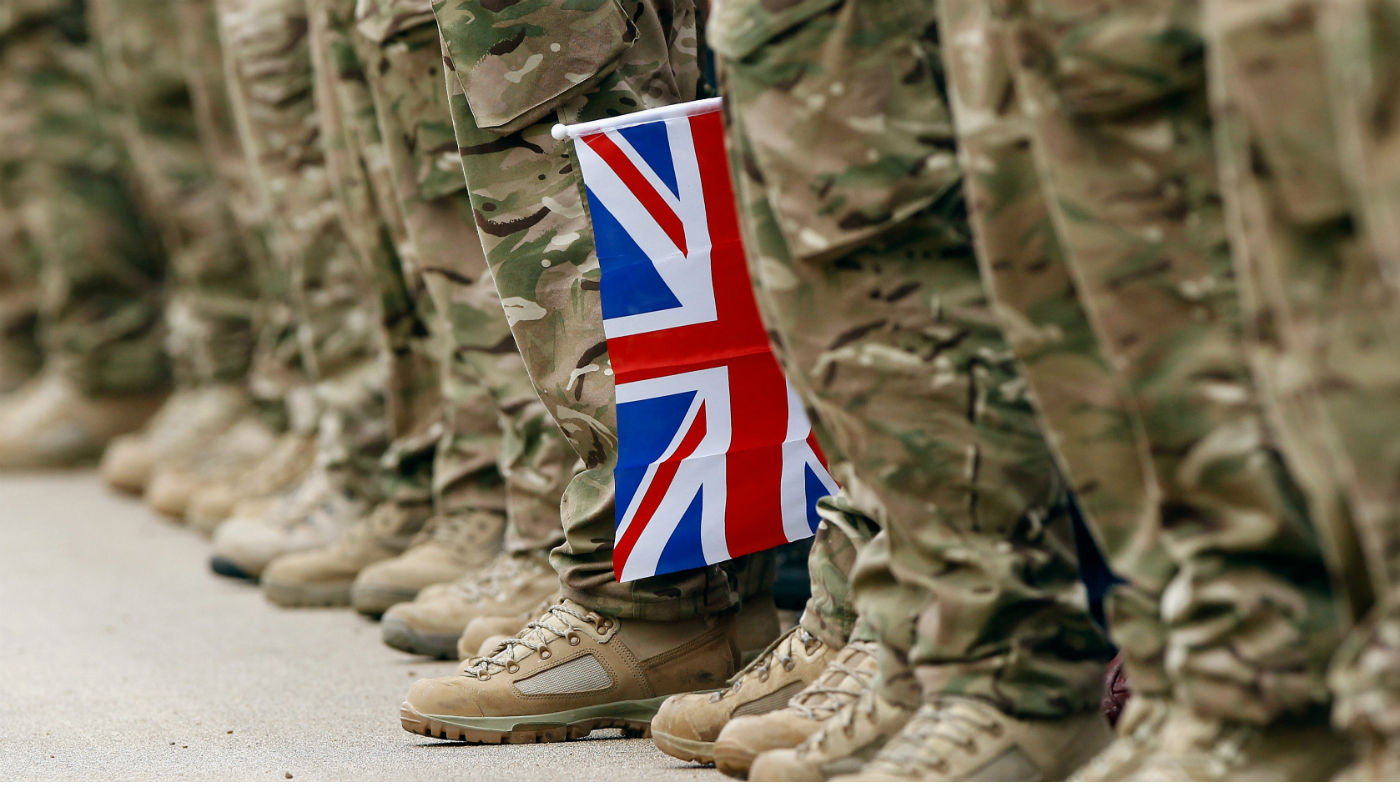D-Day: the future of the British Army 75 years on
Cyberattacks, proxy actors and rise of nationalism pose new challenges to military

A free daily email with the biggest news stories of the day – and the best features from TheWeek.com
You are now subscribed
Your newsletter sign-up was successful
Donald Trump, Theresa May and the Queen teamed up to commemorate the 75th anniversary of the Battle of Normandy in Portsmouth today.
More than a dozen world leaders attended the event on Southsea to “honour the largest combined land, air and naval operation in history”, says the BBC.
But as the the nation pays tribute to the men and women who made the Allied assault possible, the UK’s Armed Forces are grappling with how to respond to a very different set of threats.
The Week
Escape your echo chamber. Get the facts behind the news, plus analysis from multiple perspectives.

Sign up for The Week's Free Newsletters
From our morning news briefing to a weekly Good News Newsletter, get the best of The Week delivered directly to your inbox.
From our morning news briefing to a weekly Good News Newsletter, get the best of The Week delivered directly to your inbox.
Defence Secretary Penny Mordaunt addressed the issue in a speech yesterday, laying out what she sees as the purpose of the Army in 2019, reports the Forces Network news site.
“The reality is, the world is changing and the threats increasing from a diverse range of sources,” Mordaunt told the annual Royal United Services Institute (RUSI) Land Warfare Conference in London.
Cyberattacks are “now the new normal”, and the UK is also “having to deal with the hybrid dangers as nations increasingly employ proxy actors to carry out aggression and intimidation at arms-length but now below the threshold of armed combat”, she said.
Minister of State for the Armed Forces Mark Lancaster has previously highlighted the various threats posed by Russia and other hostile states, extremist groups, the rise of nationalism, organised crime and the proliferation of sophisticated military hardware.
A free daily email with the biggest news stories of the day – and the best features from TheWeek.com
Despite these new forms of aggression, deterrence still “relies on a credible threat of hard power”, Mordaunt told this week’s conference, attended by defence chiefs from across the world.
She called for investment to upgrade equipment and ensure soldiers are paid a living wage, but said there were also advantages in joint working, pointing to the Joint Helicopter Command, which brings together helicopters from the Navy, Army and RAF.
Mourdant asked: “Why can’t we do something similar with robotics and unmanned vehicles across all the services?”
The defence secretary said she also wanted the sector to do more to aid social mobility in the UK, suggesting that military colleges could be a way to divert young people from gangs and violence.
Meanwhile, the Army’s chief of general staff, General Mark Carleton-Smith, called for “an urgent reappraisal of how, with what and by whom war is waged in the future”, reports The Daily Telegraph.
“The main threat is not missiles and tanks, it is the weaponisation of globalisation, and those elements of globalisation that have hitherto made us prosperous and secure - the mobility of goods, people, data and ideas,” he told the conference.
“Secure borders, or living on an island, are no guarantees against the corrosive and intrusive effect of disinformation, subversion and cyber.”
-
 The environmental cost of GLP-1s
The environmental cost of GLP-1sThe explainer Producing the drugs is a dirty process
-
 Greenland’s capital becomes ground zero for the country’s diplomatic straits
Greenland’s capital becomes ground zero for the country’s diplomatic straitsIN THE SPOTLIGHT A flurry of new consular activity in Nuuk shows how important Greenland has become to Europeans’ anxiety about American imperialism
-
 ‘This is something that happens all too often’
‘This is something that happens all too often’Instant Opinion Opinion, comment and editorials of the day
